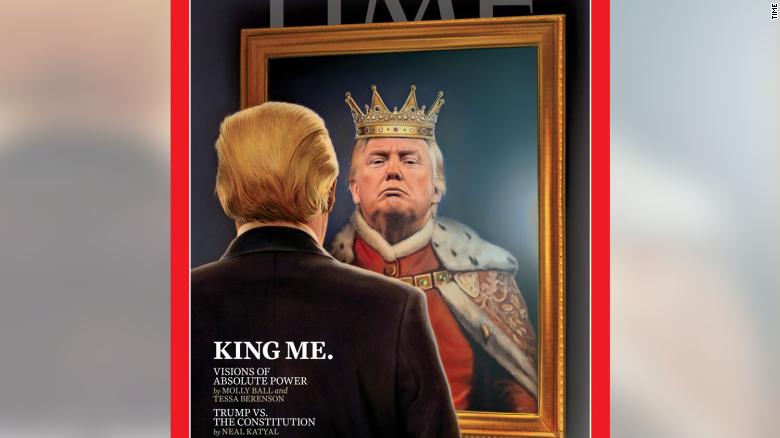
No to the Monarchical Presidency
This
morning’s White House disparagement
of the Office of Special Counsel’s recommendation that Counselor Kellyanne
Conway be removed illustrates a deeper, more threatening point about the necessity
for Congressional oversight of the monarchical presidency. The deeper point is to be found in Trump’s
recently filed brief
challenging subpoenas of his financial records issued by the House Oversight
Committee.
Congress
has no power to subject him to conflict of interest laws, Trump argues. This
challenge, shocking as it is, may be well crafted to appeal to a Supreme Court
whose conservative majority has harbored an affinity for Presidential prerogatives
and hostility to the scope of Congressional power.
Article
II of the U.S. Constitution twice imposes a duty of “faithful execution” on the
President, who must “take Care that the Laws be faithfully executed” (§2)
and take an oath or affirmation to “faithfully execute the Office of
President.” (§ 3) Who can determine what those fiduciary
duties mean and whether they have been carried out? Flawed though it may be in other respects,
the Constitution as written in 1787 answers with admirable clarity.
The
Congress is empowered to do all things Necessary and Proper (Art. I, § 8) to carry out its broadly enumerated
powers, such as to give flesh to what constitutes faithful execution of the laws.
And because law enforcement is the
province of the Executive who could assert for himself the sovereign immunity that
kings of England had claimed the House of Representatives has the authority to define
and to charge the President with “high crimes and misdemeanors”. The fear of a monarchical president pervades James
Madison’s Notes of the Federal Convention, and the pseudonymous Publius “op-eds”
by Alexander Hamilton, James Madison, and John Jay now known as The Federalist Papers.
Remarkably,
if unsurprisingly, Donald J. Trump has now asserted the powers of the
monarchical presidency. The lawyers for Trump
personally and his businesses have appealed to the D.C. Circuit Court of
Appeals to overturn the order
by District Judge Mehta that the Mazars accounting firm turn over financial records of the president and his
businesses, as demanded by the House’s Oversight Committee. Trump, through his lawyers, claims the sort
of immunity that Henry VIII demanded when he put his Chancellor Thomas More’s
head on the chopping block.
Trump
asserts in his brief in the D.C. Circuit:
[T]he legislation
that the Committee is contemplating targets “an area in which Congress is
forbidden to legislate.” The Committee asserts that Congress can extend federal
conflict-of-interest restrictions to the President or impose more stringent
financial-disclosure requirements on him. But the office of the President (like
the Supreme Court and unlike other offices and courts) is created by the
Constitution—not Congress. Accordingly, Congress cannot expand or alter the office’s
qualifications.
Like
King Henry, Trump believes he can do whatever he damn pleases. Lest one think that hyperbolic, his lawyers
go on to say
Nor can Congress
interfere with the President’s “responsibility to take care that the laws be
faithfully executed.” The species of
legislation that the Committee has in mind here would do both.
Looking
ahead to the Supreme Court the Trump lawyers argue that the same principles
apply to the high court which has exempted itself from the Code
of Conduct of United States Judges. Supreme Court Justices and Presidents, Trump
argues, have the last word on what their personal conduct shall be. It is the sort of argument that causes sleep
to be lost as Trump has now told
ABC’s George Stephanopoulos that he would accept “oppo research” from
foreign powers and would not report it to the FBI. Because
the power to impeach is the deepest locus of exclusive Congressional
jurisdiction the House would be well advised to establish a committee of inquiry
to determine if impeachment of the President is warranted.
No comments:
Post a Comment